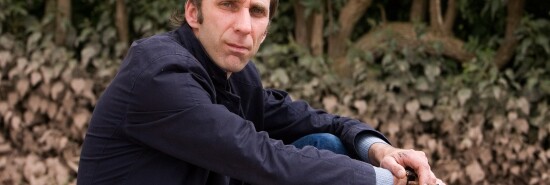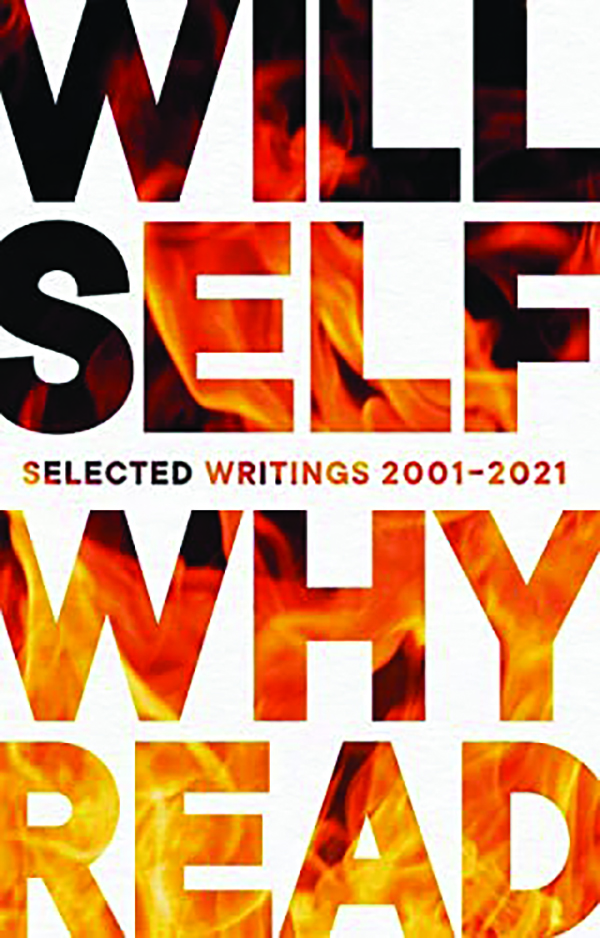
Self reflection
Malcolm Forbes
There is an essay in Will Self’s new collection in which the English writer discusses his trans-Atlantic appeal — or lack thereof. “I’m often asked if my books do well in the States,” he writes, “and I usually say this: Not too well; after all, they don’t need an extra Will Self — they’ve already got at least four of their own.”

Frustratingly, Self fails to mention who this quartet of carbon copies may be. Are they same-generation peers — established 60-somethings — or younger guns blazing onward and upward? Has the older guard charted a similar trajectory to Self — from enfant terrible out to shock, to blackly comic satirist out to skewer, to bold experimenter able to captivate and disorientate in equal measure? Have they also produced novels filled with, and powered by, grotesque characters, warped ideas, hallucinogenic mindsets, and surrealistic or nihilistic depictions of modern life? And do those novels also stubbornly resist neat classification?
Self’s literary output is so varied and his voice so unique that it is hard to imagine he has one literary doppelganger, American or otherwise, let alone four. In his 1997 book of Kafkaesque transmogrification, Great Apes, a man wakes to discover he, and everyone around him, has turned into a chimpanzee. In How the Dead Live (2000), a foul-mouthed old woman leaves the “granny guild,” departs the world, and is escorted to the afterlife in a London suburb by an Aboriginal spirit guide. And in The Book of Dave (2006), an unhinged London taxi driver’s compiled and collated angry rantings become holy writ and gospel truth centuries later in a brave new England.
Self’s last three novels were his most ambitious works to date. Umbrella (2012), Shark (2014), and Phone (2017) took readers into the busy world and radical mind of psychiatrist Zack Busner. A homage to modernism, each book in the trilogy unfolded without chapters or line breaks in a free-flowing stream of consciousness.
But if Self’s voice is singular for some, it is grating for others. His admirers might relish his stylistic risks, verbal dexterity, and uncompromising attitude (“I never sit down to write x with y in view — whether it’s a reader, a prize or a sale,” he once admitted). His detractors, however, see those strengths in a markedly different light, interpreting his inventiveness as too manic, his wordplay as too showy, and his approach as too Self-indulgent.
For my money, it is Self’s nonfiction that offers more rewarding returns. Whether book or restaurant reviews, travelogues, or articles on prison, politics, and penis extensions, Self’s think pieces are, for the most part, informed, acerbic, and refreshingly opinionated.
A reason, then, to cheer the arrival of his latest collection. Why Read is a cherry-picked selection of Self’s writing from 2001 to 2021. According to the blurb, the 23 essays constitute “writings inspired by a life lived in and for literature.” This isn’t strictly true. A handful of articles have nothing to do with literature and are all the better for it, as they lend some much-needed variety to the proceedings.
Among those nonbookish odds and ends is a brilliant essay on Chernobyl. Originally written for Playboy, Self’s account of a trip he made in 2011 to the irradiated “Zone of Alienation” chimed with the 25th anniversary of the nuclear disaster. Self’s visit also took place shortly after history had grimly repeated itself in the bleak aftermath of the Fukushima tragedy. “As I stood in the ruins of the Communist dream,” Self writes, “a new ghost town was being born on the other side of the world.” For over 20 pages, he blends keen-eyed observations with candid testimonials to map the lay of the land and convey the scope of the catastrophe. It’s too bad the collection only includes this one example of in-depth, on-assignment reporting.
Other essays cover diverse topics. “Apocalypse Then” delivers a series of short, sharp shocks about the spiraling environmental crisis. “The Technology of Journalism” examines pivotal changes in a profession that, for Self, is “as much a craft as an art.” “Australia and I” revolves around the author’s “vexed relationship” with the country and the highs and lows of his travels down under. “Isenshard” sees Self returning to a familiar theme, that of architecture, and declaring his ambivalence toward skyscrapers. After venting his spleen about why they are “the most meretricious of structures,” Self starts to gush: “I love their Promethean swagger and their crystallization of the urbane.”
These last two essays are noteworthy for offering more than is first expected. Self’s view on skyscrapers is a springboard to a wider discussion that encompasses the proliferation of high-rises, King Kong, The Towering Inferno, and 9/11. Similarly, the Australia piece expands to take in some nuts-and-bolts components of fiction, from locations to characterization: “No matter how much we assure you readers of our powers of invention, when it comes to the evanescent subtleties of human being we always draw from life.”
When Self focuses his attention solely on books, the results can be stimulating. There are two meaty author pieces, one on Kafka, the other on W.G. Sebald — the latter the “non-Jewish German writer who through his works did most to mourn the murder of the Jews.” Two of the collection’s standout pieces are book introductions, each of which comes infused with original analysis. Self argues that William S. Burroughs’s Junkie is more memoir than novel and not about heroin addiction but rather how “an alienated protagonist grapples with a world perceived as irretrievably external and irredeemably meaningless.” In an equally compelling piece on Joseph Conrad’s The Secret Agent, Self eschews the usual discussion about the thoughts and deeds of the anarchist “revolutionists” and instead examines the book’s treatment of “space, time and their odd interlinkages.”
Some articles written for Literary Hub are variations on a theme. The eponymous essay “Why Read?” and companion piece “How Should We Read?” don’t bode well, their titles similar to, and as patronizing as, that of Harold Bloom’s preachy primer, How to Read and Why. Fortunately, Self offers insight without any trace of condescension. He explores what we experience and how we benefit from entering “the flow-state of reading.” He advises us to follow his lead and read the same way gourmands eat, “gobbling down huge gobbets of text.” Only by reading indiscriminately do we learn to discriminate — and, by extension, comprehend, he claims. A third essay, “What to Read?” comes with an exhortation to “read what the hell you like” but ends with a caveat: “You are what you eat, and if your diet is solely pulp, you’ll very likely become rather … pulpy.”
Not all of Self’s essays are as satisfying. Some are insignificant squibs that fizzle out before they have a chance to get going. Some lack connecting common threads and so resemble tangled skeins with multiple loose ends. Arguments are eloquently made but don’t always convince, particularly when they stem from sweeping statements, such as Self’s insistence that the literary novel is “dying before our eyes” or that the English have bestowed “misplaced reverence” on “talented mediocrity” George Orwell. Finally, there is what is perhaps the most divisive aspect of Self’s writing: his vocabulary. Readers can decide whether by using “skeuomorphic,” “cachinnating,” “vermiculated,” “uchronic,” “irenic,” and “diallelus,” Self is clarifying his points or muddying the waters.
For all the book’s faults, Self hits far more often than he misses. At routine junctures, we discern a fierce intelligence and an inquiring mind at work. Even seemingly innocuous or frivolous pieces turn out to yield deep truths and surprise delights — the best example being “The Death of the Shelf,” in which Self gives a potted history of the bookshelf, both in the world and in his life, before musing on the new age and increasing dominance of the digital library.
And then there are Self’s witty turns of phrase: his “first tentative forays into the inhospitable, over-exploited and semi-arid country known as literary London”; or his encounter in Chernobyl with a government bureaucrat, “a female dragon in bifocals straight out of some Lubyanka of the mind”; or those occasions when “I breathe in too deeply and choke on my own decadence.” Yes, the finest essays here are incisive, perceptive, and provocative. But they are also wildly entertaining.
Malcolm Forbes has written for the Economist, the Wall Street Journal, and the Washington Post. He lives in Edinburgh.
